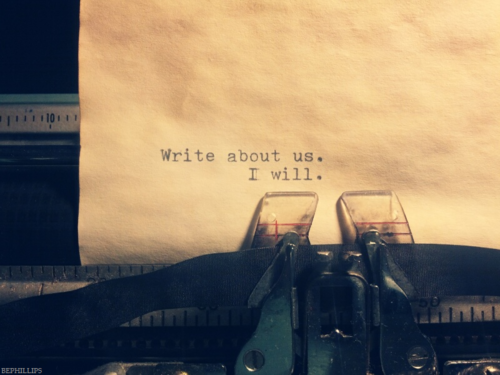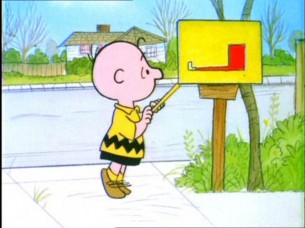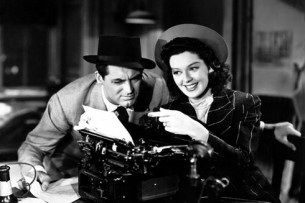Happy New Year folks!!!
This is the time of year for getting together with old friends, to ring in the new, to make listicles of everything under the sun and get our freelance receipts in order for Uncle Sam.
It’s also a time of reflection as we celebrate another successful orbit around the sun; and as we relaunch #JCarn, it’s the perfect time to look inward before looking outward and forward.
For December I had the honors of hosting and asked the brightest minds of journalism to write a letter to their younger self. Why? Because YOLO, as head carney David Cohn so elegantly put it.
With the holidays I decided to play Santa and extend the deadline through the New Year. Now that the sidewalks are littered with Christmas trees and we’re all trying to remember to write 2014 on our checks, it seems like a good time to get this Carnival train rolling again!
I asked you to write about anything, no rules, no apologies; but I did not expect such open, heartfelt and brutally soul baring responses. I’m honored to be a part of such a group, thank you for sharing yourself with the the rest of us. I hope it was enjoyable and just a tiny bit painful, but mostly enjoyable now that you look back on it.
Michelle Minkoff touched on the universal truth of growing older and wiser but still remembering that youthful idealism that set you on your current path. She made a great list of life lessons (read them all!), this one in particular made me stop and read it again:
Comforting mantra of the year, from my editor Troy who’s inspired a good number of these notes: “You can do it all, you just can’t do it all at once.”
Great advice that’s so beautifully elegant in its simplicity. I take it to mean in my own life as a reminder that we’re always learning– that’s an exciting idea– no matter how good we get or how much we learn, there’s always the promise of more cool $#!t to learn around the corner. I like that.
David Cohn looks to the past in another manner with the road not taken and the age old question of the youthful desire to “change the world” and slightly later desire of stable income and comfort.
You’ve taken an unconventional career path. A career more akin to “gigging” rather than working for a company for 10 years. You are in the middle of the ride as you write this note to yourself. It’s hard to know if it will all work out. There is an element of jumping out of a plane and weaving the parachute on the way down. This is accentuated as you get older and start to have concerns about mortgages, family, etc. But the view is pretty thrilling.
I can certainly relate to David, having spent a career as a journeyman thus far and even now I wonder what will happen. I now have equity in multiple failed start-ups, have lived out of a car twice for short stretches, taken freelance assignments that have taken me through 4 times zones in as many days, survived months on ten cent raman, lost it all, gotten it back and lost it all again many times… and like David, I’m not sure I would change anything. It’s been a thrilling ride and I’m rich in life. Money comes and goes, but you’ll always make a friend with a couple of good stories.
And then there is doubt and fear and those times when you wonder, why am I suffering? David leaves us with some great advice for this as well:
… you can’t be afraid of failure. Fear leads to anger. Anger leads to hate. Hate leads to suffering. If you wanted a steady job where you knew the patterns of success – you could have stayed at the job in 2005.
Adam Westbrook also touches on failure, or rather the frustrations of perceived failure. He really opens himself up by addressing a journal entry he wrote when he was younger about how he felt he wasn’t living up to his potential when compared to others.
I found this passage you wrote in your journal, at the times it was getting to you most.
“I am struggling under this weight of not knowing what to do next. All the while my twenties are slipping away. EVERY DAY I COME UP WITH NOTHING AND I HATE IT.”
Capital letters. You never write capital letters.
At various moments we’ve all felt like this. We look to those on Twitter with more followers, those with more awards, those with faster career paths and we wonder what is wrong with us, why haven’t we gotten it together, what is my hang up that stops me. It’s a vicious cycle that is, well, it’s bullshit. You are on your own path and there will always be someone better; but if you stick with it, you will get there.
You’ll see there’s a long game to play, and where you are tomorrow, compared to yesterday, means nothing in the long game … In the meantime others will appear to race past you in life – but that’s a parallax illusion: they’re on a different level, they’re not playing your game.
Carrie Brown-Smith reminds us that because as journalist we care and pay attention, we will find ourselves becoming angry. To come to terms with that anger, it’s important to ask the right questions, challenge assumptions and try to understand as well as teach. She writes:
… you will witness, firsthand, examples of bigotry and inequality, and read about many others in great detail as well. All of this will make you angry.
It should. But what it should never do is make you bitter.
The way to handle ignorance, adversity, and bad experiences from the tragic to the mundane, I have found, is to try to remember three simple things: “Be kind. Be curious. Be present.”
Jonathan Groves also touches on similar themes of being curious, learning and experiencing firsthand the choices you make.
With each choice, you are choosing not to do something else, and as you age, it becomes harder and harder to choose as you fear the unintended limitation of those choices. So I would tell you choose confidently. Don’t let caution lead to fear. Pursue the unexpected moments, and be fully in the moment, every moment.
In a way, I guess Jonathan has the most honest response. In the end, it’s all about what you do, so don’t do it half-assed, throw your entire ass into it!
Wait… what I mean is, what I take from Jonathan is that we’ll always wonder about the choices not made (what if I said yes to that job, what if I didn’t move, what if we didn’t break up, what if I took the desk job) and the only way to quite the fear is to choose with intent and commitment to what you think is the right path, to know you are on the path you choose and not one that was thrust upon you. It’s scary to hold your own fate, but it is your power.
Kathy E. Gill also looks at the paths not taken and reminds herself at various ages of the realities of sexism with the assurance that it does, however incrementally, get better with age.
To my 10-year-old self:
You know that letter you got from the Jockey Club? The one that says “no woman will ever be a jockey”? It’s bullshit talking. The world is changing, and you can help direct that change! Like your momma says, “you can do anything you put your mind to.” (You will grow too tall and too much, though.)
What a terrible thing to tell a ten year old, and what a reality check on our progress.
Donica Mensing decided to flip the script and had her younger self write letters to her present self, creating an unique take on choices and how they make us who we are. Donica choose love and crazy over stability early on, and was rewarded with traveling the world with her new husband, working odd jobs, scraping by, raising a family and becoming an educator… and yet she wonders:
You are worried that you’re not productive enough. You think you never spent enough time working as a professional journalist. You never won any prizes. You haven’t landed any big grants. You didn’t submit any conference papers this fall.
I don’t know about you, but that sounds like a pretty bad ass way to live your life. Donica agrees by the end, heck, it’s only human to wonder, but once again it all comes back to owning your choices:
Don’t play it safe. Keep making those risky choices you made when you were 21, and when you’re 90, you’ll be really glad you were wild in your 50s.
Vickie also took a different approch by having a conversation between her younger and present self as they try to figure out how a person who wanted to “go big or go home” in her 20s, today would tell that 20-year-old to stay home with some comfy sweatpants.
What you think means “success” changes. You think at 20 it means a high-powered career where you can have a lot of influence and do some good in the world. You think the way to get there is to have a resume. You will learn though, as you get older, that success does not mean a job title that makes other guffaw. Instead, you see in friends who travel and do good work without the praise of glamorous careers that success comes in listening to some inner voice.
Sue Robinson also wonders about the road not taken and realizes that she knows less than she thought she knew now, and in her 20s, when she thought she knew it all.
In your 20s, you thought you knew everything already. (Heck, at 12 you thought you knew everything). You had travelled the world. Lived in France. Your work had been seen by hundreds of thousands of people. … You knew how to pretend you knew what was going on even when you didn’t. You pretended so well you even convinced yourself. Youth, you thought, was not wasted on THIS youth. What could an older Self possibly have to share with you?
As Sue asks herself this profound question, the answer becomes simply “nothing,” in every which way.
We never know as much as we think we know. I personally have learned that as much as I think I know and learn, a year from now I’ll look back and think “what an idiot.” That’s certainly the case with my portfolio, with each year I look at what I considered amazing 12 months ago, today looks like amateur hour to me, and that’s beautiful because it means that I’m still getting better.
I guess we don’t know, Self.
Somewhere along the way, Self, you finally figured out in your 40s how little you really know. And that lesson — the knowledge that many, many, many more lessons await — is probably the most important one you’ve had so far.
Dani Fankhauser reminds herself that comparing yourself to others isn’t going to get you anywhere and that it’s okay to take a time-out:
Why can’t you be more _____,” you’ll say to yourself, “it’s what those other people are doing and they’re perfectly happy. When you start to feel that way, all it means is that you should spend the evening with a glass of wine and a novel rather than Facebook (by the way, you like wine).
That’s certainly good advice in my book, I know if it were not for the internet we wouldn’t be able to have this community, but we can all use a day off every now and then. I mean unless you’re going to run for president in 20 years, no one is going to be going back to check your tweets from 2014, right?
Beth Wellington is happy. Reading her post you get the sense that here is a person who bucked the advice, plowed ahead and is now enjoying the wake of her choices. Once again, it’s about owning your choices.
Don’t worry. Things will work out.
You’ll do fine with your career. You won’t always seem to have a plan, but if you pursue what engages you, your resume will make sense and if someone seems like they wouldn’t want to hire you if you were truly yourself, you wouldn’t want to work there anyway. Your gift will be the abilities to connect the small daily details to a larger picture with the patience to pursue it and to entice folks to work with you, not for you. That’s because you are neither a follower nor a leader n the conventional sense. If your family fear for your path or others belittle it, lovingly ignore them.
You will be able to make a home anywhere.
Mary Hamilton gives us her favorite mantra: It gets better.
This will be the only thing you believe without empirical evidence, not because it is pleasant but because you have already seen the alternative, where it was worse, and that is no longer an option.
Mary also opens up about a period of hardships, when she was hospitalized for trying to hurt herself. It must have been hard to write, I certainly had a hard time reading it. Thank you Mary for your frankness and honesty and thank you for the hope that no matter how bad it gets, it gets better.
… You will make things – games, poems, stories. You will smile almost every day. You will no longer need to make lists of what is good in the world. You will know it in your bones. You will work well in a job that makes you happy. You will play well in a world that makes you happy. You will create muscles where once was skin and bone. You will still have bad days, but they will be rare and nowhere near as bad as they once were.
Thank you
Thank you to everyone who shared a little piece of themselves, I was hoping for something that cut deeper, but I never expected so many of you to give so much. I was moved by the honesty and lessons found in the links above and the many many similarities and fears we all share.
I’m grasping for words because at the moment, words fail me. I’m a photojournalist, so let’s say that’s my excuse, but not an apology 😉
I’m truly blown away, I never expected so many people to just open themselves like this. Taken as a collection, we’re not all that different and we all worry and care about the same things. Are we making the right choices, are we happy, what is life about. Big big questions and look at all of us, we range in ages, upbringings, locations, backgrounds and yet we all worry about the same thing. I guess that’s human nature.
Thank you friends.



